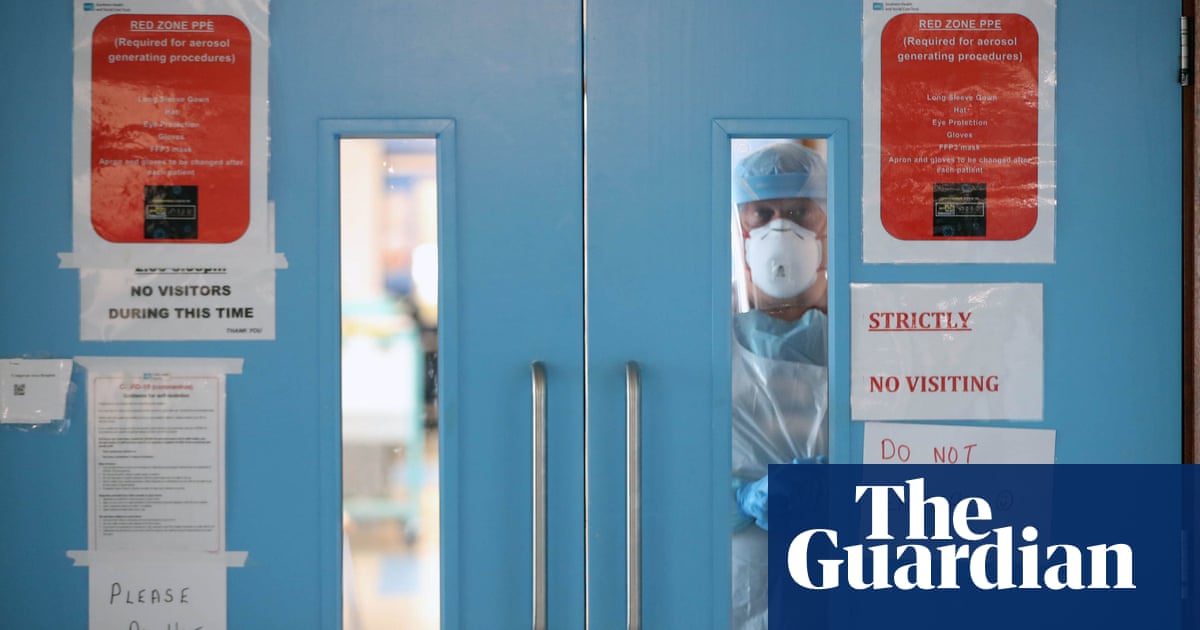
Women should switch GP if their doctor is not sympathetic, according to the chair of a highly critical patient safety inquiry, who said a series of medical scandals had left trust in the healthcare system “seriously broken”.
Lady Julia Cumberlege, who led the review covering three separate medical scandals, said she hoped the findings would act as a wake-up call that a radical change in NHS culture was needed.
One empowering step patients – women in particular – can already take is to change their GP if they are met with a dismissive attitude, she advised. “If you find your GP … isn’t doing their very best for you then you should change,” she said. “You need someone you can trust and who will work for you and ensure you are taken seriously.”
Cumberlege said it was deeply troubling that so many women affected by the epilepsy drug sodium valproate, vaginal mesh and the hormone pregnancy test Primodos had been dismissed in the face of compelling safety concerns. Often they were told their problems were “all in your head” or simply down to the menopause, she said.
Primodos, which has been linked to birth defects, has not been used as a pregnancy test since the 1970s, and the widespread use of vaginal mesh as an incontinence or prolapse treatment has been paused in the UK. However, even today, the review found, women who have epilepsy are taking sodium valproate and are not being told of the substantial risks during pregnancy.
“This medication causes harm to unborn children, and pregnant mothers continue to be unaware of that fact and of the risks involved,” she said. “Hundreds of women are taking valproate when they’re pregnant and not told about the risks. Health professionals simply don’t inform them. Regulators have not done enough when they should have done. And no one is tracing those that have been affected. And as a consequence, the woeful lack of support and help is palpable.”
The review did not recommend banning the prescription of sodium valproate to women in pregnancy, but said this should happen only after women are fully informed of all the risks. “We’ve had women who’ve said, ‘If I’d have known I would have never taken this medication’,” said Cumberlege. “They didn’t know the chances were one in two. One in two damaged babies – what a tragedy.”
The inquiry was commissioned in 2018 by the former health secretaryJeremy Hunt to examine the three scandals, but the inquiry found the problems underpinning them were systemic and far-reaching.
Cumberlege said that while innovation in medicines and medical implants had saved lives, it had also resulted in devastating harms. “Innovation without premarket testing, post-market surveillance and post-market monitoring is quite simply dangerous,” she said. She added that the failure to collect data on patient outcomes meant the healthcare system, including the Medicines and Healthcare products Regulatory Agency, was “flying blind”. “Acting swiftly to prevent harm is impossible without good data,” she said.
Simon Whale, a member of the review panel, said the systemic problems uncovered meant the three scandals the inquiry focused on were unlikely to be unique. “Sadly, it is quite likely that there are other areas where similar problems, mistakes and tragedies have occurred,” he said.
Cumberlege said it was difficult to criticise the NHS at a time when doctors and healthcare workers were being applauded as heroes for their work during the Covid-19 crisis but said the report needed to come out before the world “moves on”.
Speaking at a press briefing she said she was “surprised” the government had scheduled a major speech by the chancellor, Rishi Sunak, on the same day as the inquiry’s publication, because it had been “on the grid for three or four weeks”.
On Wednesday, Matt Hancock, the health secretary, said: “On behalf of the NHS and whole healthcare system, I want to issue a full apology to those who have suffered and their families for the frustration, for the time that it’s taken, that they have taken, to get their voices heard.
“This report is a wake-up call to the system to respond to patients’ concerns. One of the most striking things I have found from talking to some of the women who have been badly affected, is not only were they suffering in pain, but also the deep frustration that no one in authority would listen. And we have listened. This report details those painful accounts.”
The government is expected to make a more detailed response to the report in the House of Commons on Thursday.












